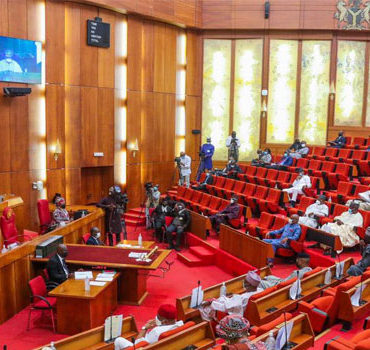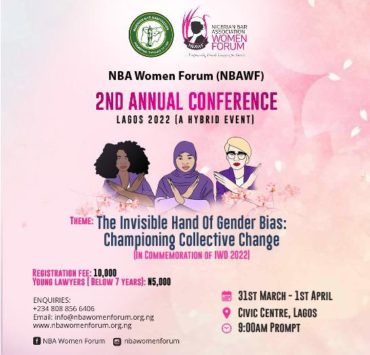Be the First to Know: On Garnishee Proceedings and the Necessity of AG’s Consent for State Government Funds Held in Banks

Lawyard is a legal media and services platform that provides…
TITLE: WILL FUNDS HELD BY A STATE GOVERNMENT AS JUDGMENT DEBTOR IN A BANK BE SUBJECT TO THE CONSENT OF THE ATTORNEY GENERAL IN LINE WITH SECTION 84 OF THE SHERIFFS AND CIVIL PROCESS ACT
CASE TITLE: LODIGIAN (NIG) LTD v. A.G., ZAMFARA STATE & ORS (2021) LPELR-55645(CA)
JUDGMENT DATE: 8TH OCTOBER, 2021
JUSTICES: FATIMA OMORO AKINBAMI, JCA
ABUBAKAR MAHMUD TALBA, JCA
PETER OYINKENIMIEMI AFFEN, JCA
COURT DIVISION KADUNA
PRACTICE AREA: Practice and Procedure- Garnishee Proceedings
FACTS:
There was a dispute between Lodigian (Nig) Ltd (Appellant) and A.G., Zamfara State (Respondents). Pursuant to an arbitration agreement by the parties and under the Arbitration and Conciliation Act, Cap A18 LFN 2004, the Chief Judge of Zamfara State High Court made an order on the 3rd October, 2017, appointing an independent and sole arbitrator, in the person of E. O Isaramen Esq., to facilitate an amicable resolution of the dispute between the parties.
Subsequently, the arbitrator rendered a final arbitral award and thereafter published same on 29th November, 2018.
The Appellant, who was the Judgment Creditor then commenced a suit in the trial Court against the 1st and 2nd Respondents, as Judgment debtors, vide a motion ex-parte, seeking for an order of the trial Court recognizing and granting it leave to enforce the final arbitral award in the same manner as a judgment of the trial Court.
The trial Court granted the reliefs as sought.
Thereafter, the Appellant applied and obtained a Garnishee Order Nisi against the 3rd Respondent, to show cause why the said Order Nisi should not be made absolute. The 1st and 2nd Respondents/Judgment Debtors filed a Notice of Preliminary Objection against the Garnishee proceedings on the grounds that the condition precedent for initiating garnishee proceedings, which is obtaining the consent of the Attorney General, had not been fulfilled by the Judgment Creditor before the garnishee proceedings was initiated, thus the trial Court lacked jurisdiction to entertain the garnishee proceedings.
In its considered ruling, the trial Court upheld the preliminary objection and declined jurisdiction due to the absence of a prior consent of the Attorney General of Zamfara State in view of Section 84 of the Sheriffs and Civil Process Act. The garnishee proceedings was consequently struck out.
Aggrieved, the Appellant appealed.
ISSUES FOR DETERMINATION
The appeal was determined upon consideration of the issue thus:
“Whether the Court below is correct in law when it held that it is not vested with the requisite jurisdiction to have adjudicated on the garnishee proceedings filed before it by the appellant in the absence of the prior consent of the Attorney General of Zamfara State as required by Section 84 of the Sheriffs and Civil Process Act, Cap 86 LFN 2004.”
COUNSEL SUBMISSIONS
Learned Counsel for the Appellant submitted that it is settled law that where the Attorney General of the Federation or State is a party in a suit, the requirement for obtaining the consent of the Attorney General before the commencement of garnishee proceedings as provided by Section 84(1) of the Sheriff and Civil Process Act will be dispensed with. That the Attorney General of Zamfara State is the Judgment Debtor and as such his consent is not required to enforce the Judgment against him. He relied on the case of C.B.N vs Interstellar Communications Ltd.
In response, Learned Counsel for the 1st and 2nd Respondents submitted that the submission by the Appellant shows a misapprehension of the decision of the Supreme Court in C.B.N v. Interstellar Communications Ltd. That the Court did not hold as a general principle that the consent of the Attorney General of the Federation was not required because he is a party to the suit.
Learned Counsel for the 3rd Respondent submitted that throughout the length and breadth of the provisions of Section 84(1) and (3) of the Sheriff and Civil Process Act, nowhere was it provided therein that where the Attorney General of the Federation or of the State is a party to the garnishee proceedings, the requisite consent of such an Attorney General shall not be required before a garnishee order nisi is issued by a Court.
He submitted that the wordings of the said Section 84 of the Sheriff and Civil Process Act are clear and unambiguous. That it is manifest that no fund standing to the credit of the government of a State can be attached in execution of a Judgment of a Court unless the prior consent of the Attorney General of the State is sought for and obtained.
DECISION/HELD
In the final analysis, the Court of Appeal allowed the appeal and set aside the ruling of the trial Court. As a result, the case was remitted back to the Chief Judge of Kaduna State for trial on its merit before another Judge of the Kaduna State High Court.
RATIO
- PRACTICE AND PROCEDURE- GARNISHEE PROCEEDINGS: Whether monies held by a State Government/judgment debtor in a bank is in custody or under the control of a public officer and therefore subject to the provisions of Section 84 of the Sheriffs and Civil Process Act –
“It is settled law that where a garnishee is a Public Officer, the requirement of seeking and obtaining the consent of the Attorney General is a sine qua non for the validity of garnishee proceedings. The wordings of Section 84(1) SCPA is: “where money is in the custody or control of a public officer in his official capacity or the Court in custodia legis, the order nisi shall not be made unless the consent of the appropriate officer has been obtained.” The key words in Section 84 of the SCPA are “custody” “a control” and “consent”. It is therefore pertinent to consider when money is said to be in custody and control of a public officer to require the consent of the Attorney General before commencement of garnishee proceedings against the State.
Where the funds of government are lodged in a bank, can it be said that such money is in the custody and control of the public officer and as such it cannot be garnished without the consent of the Attorney General first sought and obtained. The answer can be found in the case of Purification Techniques Nig. Ltd. vs Attorney General, Lagos State (2004) All FWLR (Pt. 211) 7479. Galadima JCA (as he then was) held at page 1495 para’s C – E thus: “Given the nature of the relationship between banker and customer, and the contract that exists between them, the customer has neither the “custody” or the “control” of monies standing in his credit in an account with the bankers. What the customer possesses is a contractual right to demand payment for such monies. Monies in the hand of the garnishee banker are not “in custody” or under “control” of the judgment debtor customer. Such monies remain the property in the custody and control of the banker and payable to the judgment debtor until a demand is made.”
At page 1494 para-B – F, His Lordship further held as follows: “In the respondent’s brief, learned counsel has submitted that before a party can be entitled to attach by garnishee proceedings money of the government in any bank, the provision of Section 84 of the Sheriffs and Civil Process Act must be complied with because such money is part of public funds of the state under the control of public officer in the state. Reference was further made to Section 120 of the 1999 Constitution of the Federation by the learned counsel for the respondent who then submitted that only the Accountant General of the State being a signatory to government bank account could have the power to issue cheques drawn on any public funds of the State kept with a commercial bank on such authorization or approval. I must say with due respect to the learned counsel for the respondent that he has made a simplistic approach to the issue at stake by submitting that monies held in bank accounts in the name of Lagos State Government are “in the custody” or “under the control” of a public officer or are otherwise “in custodia legis.” There is absolutely no basis for treating government bank accounts any different from bank accounts of every other juristic person or customers. The relationship of a bank to customer is contractual. It is essentially that of a debtor to a creditor in the case of credit balances.” Although there is a litany of decided cases from this penultimate Court wherein the opinions of Justices are divided on the issue that Central Bank of Nigeria (C.B.N) is a public officer. There is no such decision as it relates to Commercial banks. It is therefore not in doubt that the 3rd respondent herein being a commercial bank is not a public officer and no necessity arises to seek and obtain the consent of the Attorney General of Zamfara State.
Section 84(3)(a) and (b) SCPA refers to money which is in the custody of a public officer who holds a public office in the public service of the Federation or of a State. How then could the 3rd Respondent, a Commercial bank fall within the ambit of this law. The case of C.B.N vs. Interstellar Communications Ltd (2018) 7 NWLR (Pt. 1618) 294 (SC) is a locus classicus on the issue that a bank either C.B.N or a Commercial bank is not a public officer and therefore there is no need or necessity to seek for and obtain the consent of the Attorney General before the commencement of garnishee proceedings. The decision of the apex Court in C.B.N vs. Interstellar (supra) is binding on all Courts in view of the doctrine of stare decisis. If the learned trial Chief Judge had considered and applied the case of C.B.N vs. Interstellar (supra), he could not have reached the decision which is subject of this appeal.” Per TALBA, J.C.A.
Lawyard is a legal media and services platform that provides enlightenment and access to legal services to members of the public (individuals and businesses) while also availing lawyers of needed information on new trends and resources in various areas of practice.














